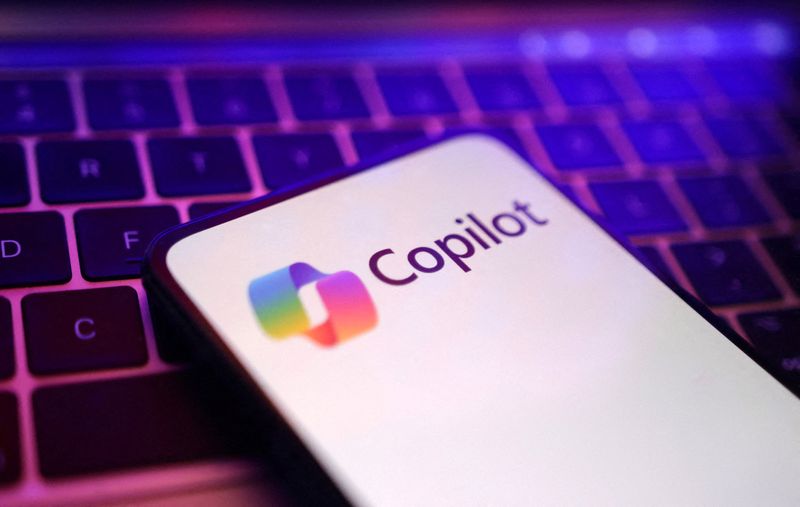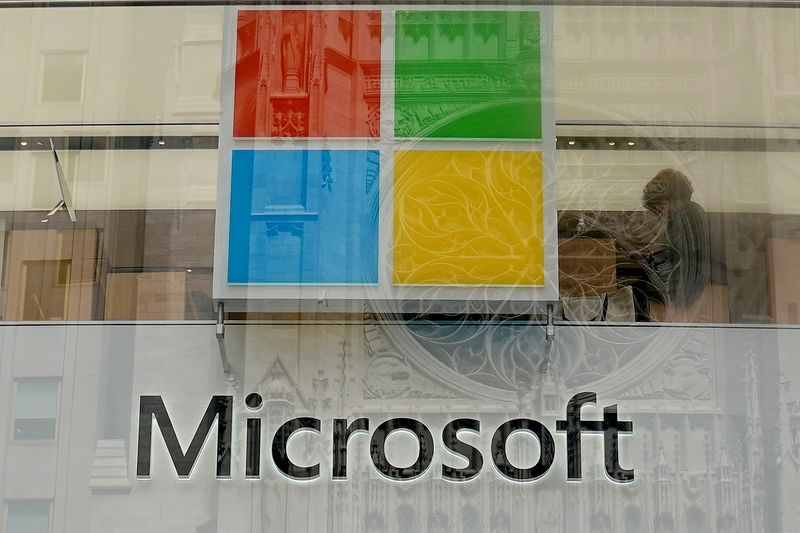By Jeffrey Dastin
SAN FRANCISCO (Reuters) – Microsoft (NASDAQ:) has given its consumer artificial intelligence assistant Copilot a friendlier voice in its latest update, with the chatbot also able to analyze web pages for interested users as they browse.
The US software maker now has “a whole army” of creative directors – including psychologists, novelists and comedians – refining Copilot’s tone and style to differentiate it, Microsoft AI CEO Mustafa Suleyman told Reuters in an interview.
In a demonstration of the updated Copilot, a consumer asked which housewarming gift he should buy at the supermarket for a friend who didn’t drink wine. After some back and forth, Copilot said out loud, “Italian (olive) oils are all the rage right now. Tuscan is my go-to. Super peppery.”
The rollout of the feature, which begins Tuesday, is one of the first Suleyman has overseen since Microsoft launched its division in March to focus on consumer products and technology research.
Microsoft has long identified with enterprise software and has taken a much tougher road in the consumer space. For example, the Bing search engine is still overshadowed by Google (NASDAQ:).
Suleyman is hoping for a bigger splash with Copilot, which launched last year in a crowded field of AI chatbots including OpenAI’s ChatGPT and Google’s Gemini.
Copilot’s new voice capabilities make him seem much more of an active listener, giving verbal cues like “cool” and “huh,” Suleyman said.
At the core of the product are Microsoft AI or “MAI” models, plus a technology suite from partner OpenAI, Suleyman said.
Suleyman added that consumers who spend $20 monthly for Copilot Pro can test a “Think Deeper” feature that reasons through choices, such as whether to move to one city or another.
He said an additional testing feature for paying subscribers, Copilot Vision, amounts to “digital pointing”: the ability for users to talk to AI about what they see in a Microsoft Edge browser. Consumers must opt in and the content they view will not be stored or used to train AI, Microsoft said.
These updates represent “glimmers” of AI that can be an “ever-present confidant in your corner,” Suleyman said. It’s a vision he articulated as CEO of Inflection AI, whose top talent Microsoft acquired in a closely watched deal this year.
Suleyman said Copilot will eventually learn the context of consumers’ Word documents, Windows desktops and even their gaming consoles if they give permission.

When asked what Microsoft co-founder Bill Gates thinks of the company’s AI efforts, Suleyman said Gates was enthusiastic.
“He always asks me when Copilot can read and parse his emails. It’s one of his favorite emails,” Suleyman said. “We are working on the case.”


